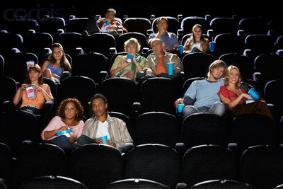Memory, attention and eating
Our work shows that attending to a meal affects the extent to which it reduces hunger after it has been consumed. In several studies we have demonstrated this effect by distracting people while they eat.

It is also becoming clear that screen-based distraction (computer games, TV, etc) compromises our capacity to encode (remember) important aspects of a meal. This degraded memory is important because it actually increases the amount of food that is consumed at a subsequent meal.
We have also been exploring ways in which we might manipulate memory encoding. Specifically, we are interested in whether it is possible to increase the fullness that is experienced after a meal simply by changing a person’s beliefs about the food or portion size that has been consumed. In the NBU we already have several demonstrations of this kind, based on manipulations to product labelling, ingredient information, and perceived portion size.
Relevant peer-reviewed papers:
- Ferriday, D, Bosworth, M, Lai, S, Godinot, N, Martin, N, Martin, A, Rogers, P & Brunstrom, J 2015, 'Effects of eating rate on satiety: A role for episodic memory?' Physiology & Behavior. Click here to read
- Herbert, V, Bertenshaw, EJ, Zandstra, EH & Brunstrom, JM 2014, 'Memory processes in the development of reduced-salt foods' Appetite, vol 83, pp. 125-34. Click here to read
- Brunstrom, JM, Burn, J, Sell, NR, Collingwood, JM, Rogers, PJ, Wilkinson, LL, Hinton, EC, Maynard, OM & Ferriday, D 2012, 'Episodic memory and appetite regulation in humans' PLOS ONE, vol 7, no. 12, 50707. Click here to read
- Oldham-Cooper, RE, Hardman, CA, Nicoll, CE, Rogers, PJ & Brunstrom, JM 2011, 'Playing a computer game during lunch affects fullness, memory for lunch, and later snack intake' The American Journal of Clinical Nutrition, vol 93, no. 2, pp. 308 - 313. Click here to read
